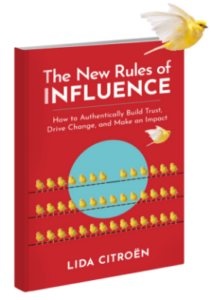A Guest Blog By John Fawkes
 A funny thing happened the last time I went job-hunting. I got a call from the owner of an advertising agency that I had applied to earlier that week, and he was very excited to talk to me. The funny part is, he didn’t even want to talk about advertising at first. No, he was excited to talk about kung-fu.
A funny thing happened the last time I went job-hunting. I got a call from the owner of an advertising agency that I had applied to earlier that week, and he was very excited to talk to me. The funny part is, he didn’t even want to talk about advertising at first. No, he was excited to talk about kung-fu.
You see, the previous year I had earned my black belt in Kung Fu San Soo, and on someone else’s advice, I put that on my resume in a special hobbies and interests section. The owner of this ad agency was a long-time Krav Maga practitioner, and we immediately bonded over our shared interest in martial arts. In his words, the kung-fu experience showed that I was a go-getter, with the killer instinct that it takes to succeed in a business development role.
I went in for an interview, and a week later, I had a job, despite competition from several older, more experienced candidates. Now, there were other things I did right, including being better prepared than the other candidates, winning over the entire team, and proper follow-up, but it was the hobbies and interests section on my resume that got my foot in the door and made the owner fall in love with me. There are six purposes that a hobbies and interests section on your resume can serve, and the best resumes will combine several of them.
1. Just stand out
This isn’t hard to do, as long as your interests include more than just watching TV and going to bars with your friends. Kung-fu did the trick, and I’ve seen other people use karaoke, ballroom dancing, and poetry. You can also write something quirky and offbeat, like being in the Guinness Book of World Records or winning a Settlers of Catan tournament.
2. Show interests related to your job
Admittedly, kung-fu didn’t serve this purpose for me, but you might have some interests that are relevant to the job you want. If you’re applying for a wildlife conservation group, it helps if you say you love hiking and camping. If you’re applying to be a copywriter, letting the hiring manager know that you write short stories for fun will definitely help you make a favorable impression. Applying for Pandora? Let them know you used to be in a band!
This is highly dependent on the jobs you’re applying for, but it has obvious (and non-obvious) value. First off, it can show skills and knowledge that will be useful on the job. Beyond that, having relevant interests conveys that the job you’re applying for is something you’re truly passionate about and that you’re likely to truly enjoy your work. Employers care about this for several reasons: it makes you more fun to work with, more productive and hard-working, and more likely to stay a long time. The last is particularly important for millennials, who have a reputation for switching jobs every year or two.
3. Show accomplishments outside of work
Having accomplishments, as opposed to mere interests, shows that you’re an active, hard-working person who spends their spare time achieving things, rather than just vegetating. It shows initiative and discipline, because you still accomplish big things even when nobody is holding a gun to your head (although I did have a fake gun to my head for a few classes- but I digress).
This is the difference between studying kung-fu vs. having a black belt. It’s the difference between playing poker and having placed in a major regional tournament. It’s the difference between being interested in fashion and making and selling purses as a hobby (something my sister actually used to do). If you don’t have any big accomplishments in your personal life, start thinking about how you can get one quickly. Is there a competition you can enter, a website or newsletter you could be featured in, or a person or organization who you can help?
4. Balance out the impression you give
I learned this from Ramit Sethi, who wrote on his resume that he and a friend ran a comedy newsletter in college. Why? Because his resume was otherwise full of things like running a tech startup, writing a personal finance blog, and interning at a large computer company. Combined with giant eyebrows that make him look perpetually stern, it was easy to mistake him for someone who isn’t fun or friendly.
It can be hard to understand how your resume makes you come off, and most recruiters and hiring managers won’t tell you. This is one of many reasons you should have a trusted, successful friend look over your resume. Once you understand how people are likely to see you based on your resume, find a way to smooth out your first impression to sound well-rounded. Too serious/stiff? Add something that shows fun and/or humor. Do you not sound hard-working enough? See item 3- show an accomplishment outside of work. Do you sound like you might be a jerk? Volunteer work will fix that right up.
5. Show that you’re fun and not a workaholic
As mentioned, this was Ramit’s challenge. Paradoxically, the more accomplished you are, the more people are likely to worry that you have no life outside of work. One of the biggest concerns hiring managers have is likability, so showing that you have a social life can be a significant boost to your chances of getting hired.
Moreover, smart managers understand that workaholics actually make terrible employees. People who have things to do outside of work make the effort to get their work done quickly and efficiently, whereas workaholics tend to drag their feet and manufacture crises just to give themselves (and others) more work to do. Hiring managers at well-run companies prefer employees who have fun lives, because those employees get the job done.
6. Express commonalities with hiring managers
Research shows that people like you more if they have something in common with you- even something trivial, like a favorite food. Being able to show that you have something in common with one or more of the people making the hiring decision can work wonders- not only does it help you get a call back, but the interview becomes dramatically easier.
Admittedly, I lucked out with my last job, as I had no idea that the owner studied Krav Maga until he called me. You can’t force commonalities, but the surest way to find out what you have in common with the hiring manager is to do your research. Read the manager’s LinkedIn profile and newsfeed, Twitter feed if they have one, or just ask former employees of the company for advice- you should be talking to former employees anyway, as they provide the best, most honest source of inside information about a company.
A hobbies and interests section is one of the best ways to differentiate yourself from the crowd and ensure that companies invite you in for an interview. Beyond just getting a job, differentiating yourself can result in higher pay, as employers are less likely to view you as replaceable by other job seekers. An ideal hobbies and interests section should include two to four items and fulfill at least four of the six purposes laid out in this article.
John Fawkes is a blogger, career coach, and marketing consultant. He helps people find their dream jobs and build careers they love- when he’s not busy practicing his sword fighting and knocking guns out of people’s hands.



Really insightful. It worked for me at an interview once.
great article – something I had never considered before. I always thought the Hobbies section, and the “personal information” section were just wasted space. Interesting take on this!
Thank you! John has great insights!